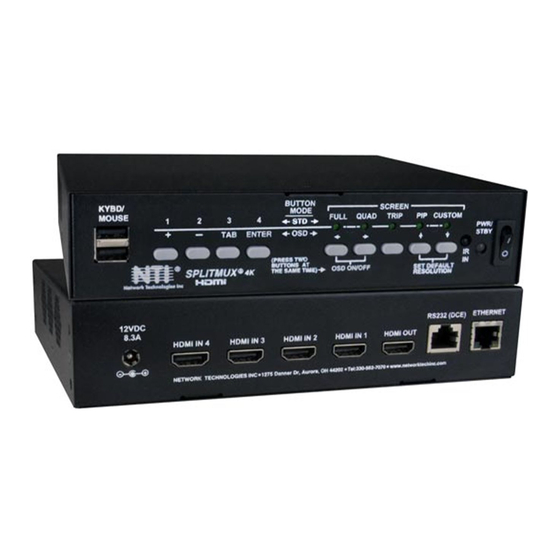
NTI SPLITMUX-4K18GB-4 4K HDMI Splitter Manuals
Manuals and User Guides for NTI SPLITMUX-4K18GB-4 4K HDMI Splitter. We have 2 NTI SPLITMUX-4K18GB-4 4K HDMI Splitter manuals available for free PDF download: Installation And Operation Manual
NTI SPLITMUX-4K18GB-4 Installation And Operation Manual (78 pages)
4K 18Gbps Quad Screen Splitter/ Multiviewer
Table of Contents
Advertisement
NTI SPLITMUX-4K18GB-4 Installation And Operation Manual (87 pages)
4K 18Gbps Quad Screen Splitter/Multiviewer
Brand: NTI
|
Category: Media Converter
|
Size: 4 MB
Table of Contents
Advertisement

